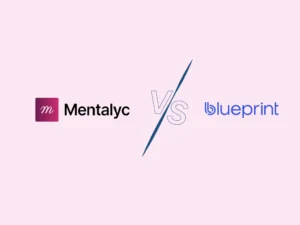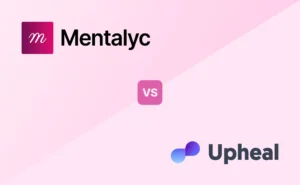Documentation is a crucial part of mental health treatment in today’s age of accountability. It is the only evidence demonstrating the need and effects of treatment. Simply stating that a client has a certain diagnosis or claiming that therapy has been helpful to the client is an opinion but not evidence. Empirical evidence demonstrating that treatment was necessary and effective is essential.
It is possible, and even mandatory, to document the outcomes of psychotherapy in objective, measurable terms without mechanizing or dehumanizing the process. The clinical skills employed in psychological treatment are unrelated to documentation skills. One can be a great therapist but have lousy documentation skills. Similarly, being proficient at documentation does not necessarily mean one would make a good therapist. Although it is ideal to be proficient in both areas.
We live in an age of both personal and professional accountability. In addition to mental health workers, other professionals such as politicians, executives, clergy, educators, and people from most walks of life have increasing demands placed on them to demonstrate that they have practiced their profession effectively and ethically.
Standards of accountability and regulations in mental healthcare
The standards of accountability for mental health professionals come from many sources. State boards such as psychiatry, nursing, psychology, social work, substance abuse, professional counselors, and marriage and family therapy each have specific guidelines for licensees. Accrediting agencies such as the Commission on Accreditation for Rehabilitation Facilities (CARF) and The Joint Commission (TJC) and third-party payers such as insurance companies and managed care organizations maintain specific documentation requirements to ensure accountability.

New! Transfer your notes to EHR with a single click. No more copy-pasting.
Such regulations are designed to both increase clinical effectiveness and help curtail the rising costs of mental health services, which have skyrocketed over the years. Current standards of third-party payers hold that services must be medically necessary to be covered for payment. Both third-party payers and regulatory agencies impose a strict requirement that each step of the clinical process must be clearly documented. Therefore, providing appropriate documentation and communicating evidence of clients’ needs for services is crucial for a clinic’s financial and professional survival and growth.
As a bonus, many clinicians have commented that after they learned sound documentation skills, their therapy became more on target and less vague or unfocused.
Learning on-target documentation procedures is much more than simply meeting professional regulations or requirements for payment of services. Accurate recording procedures provide clear evidence of what takes place in mental health sessions. Without accurate documentation, it is not possible to evaluate therapeutic effectiveness because there is not a clear record of what took place in therapy. Sloppy clinical procedures are not only unfair to the client but can border on malpractice.
During times such as a third-party audit or a clinical review, proper documentation validates the course of therapy. When sound documentation procedures are followed, a written record of treatment will be available for review, including:
(a) Validation of the correct diagnosis
(b) The medical necessity of services
(c) Therapeutic effectiveness
(d) Appropriateness of services performed
(e) Continuity of services
(f) Evaluation of therapeutic outcomes
The result is setting a high standard for mental health treatment.
In the past, third-party payers simply paid therapists when an insurance claim was made. Costs escalated, and managed care flourished. Today, third-party payers no longer blindly accept billing for any psychotherapy services. They require specific types of evidence demonstrating the client’s need for services and the treatment’s effectiveness before they will pay for the treatment. Without knowing proper documentation procedures and how to present a case on paper, the therapist is vulnerable to appearing to be “out of compliance” or providing “unnecessary services,” even if the treatment is exceptional.
Many therapists have claimed that they were unaware that most third-party payers do not cover counseling that is intended solely for “personal growth,” rather than treating psychopathology. This is not to say that counseling for personal growth is not helpful, but it is typically not covered by insurance. Thus, it is usually an out-of-pocket expense. Such counseling likely fits under the category of services a life coach offers.
Please be aware that insurance companies do not pay for services without adequate documentation and a definite mental health diagnosis and related impairments. It can be quite tempting to assign a diagnosis to a client whose symptoms do not meet the Diagnostic and Statistical Manual of Mental Disorders (DSM)-5 criteria for the diagnosis in order to receive payment. Avoid this practice at all costs. Your reputation is on the line!
Risks to clients when receiving mental health treatment
There are certainly other risks for clients when they are receiving mental health treatment. Most of them are unfair to the client, who simply wants to get better.
A few of these risks include the following:
- Being labeled as having a mental illness can lead to stereotypes by both the client and others involved in the client’s life.
- Poor therapy can lead to a decline in the client’s condition or a feeling that there is no hope.
- Some types of counseling are inappropriate for certain clients.
Conclusion
In this era of accountability, documentation of mental health treatment is imperative. It is the only evidence supporting the need for and effectiveness of treatment. To claim that therapy has helped a client or that a certain diagnosis has occurred is an opinion, not evidence. To prove the necessity and effectiveness of a treatment, empirical evidence must be provided. It’s imperative to document the psychotherapy outcome objectively and in measurable terms without automating the process.
References
- The Psychotherapy Documentation Primer, Fourth Edition by Donald E. Wiger
Why other mental health professionals love Mentalyc

“It’s so quick and easy to do notes now … I used to stay late two hours to finish my notes. Now it’s a breeze.”
Licensed Professional Counselor

“A lot of my clients love the functionality where I can send them a summary of what we addressed during the session, and they find it very helpful and enlightening.”
Therapist

“Having Mentalyc take away some of the work from me has allowed me to be more present when I’m in session with clients … it took a lot of pressure off.”
LPC

“It takes me less than 5 minutes to complete notes … it’s a huge time saver, a huge stress reliever.”
Licensed Marriage and Family Therapist






